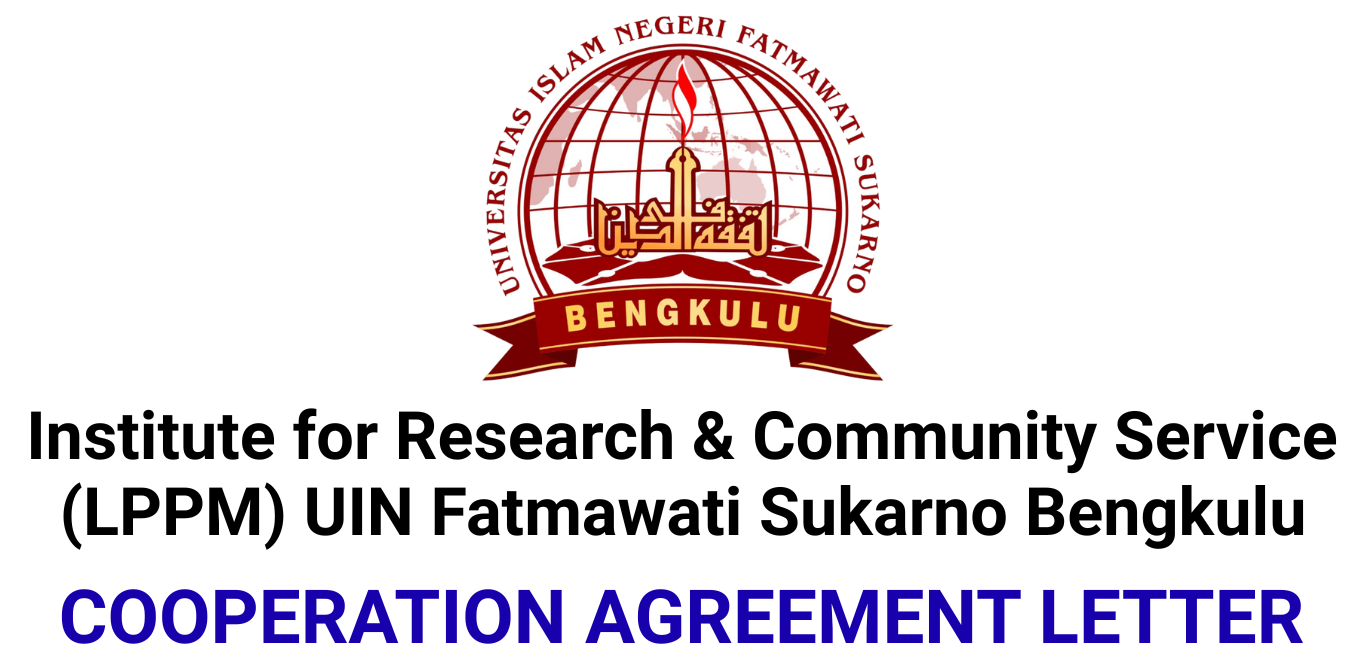The Use of the Problem-Based Learning (PBL) Model to Improve Islamic Education Learning Outcomes for Elementary School Students
DOI:
https://doi.org/10.64420/jippg.v1i2.242Keywords:
Problem Based-Learning Mod, slamic Education, Learning Outcomes, Elementary StudentsAbstract
Objective: The purpose of this study was to determine the effect of applying the Problem-Based Learning (PBL) model in improving learning outcomes in Islamic Religious Education, specifically on the asmaul husna material, at SDN 58 Bengkulu Selatan. Method: This research is classroom action research (CAR) conducted in 2023 at SDN 58 Bengkulu Selatan. The subjects of the study were 20 fourth-grade students. Data were collected using test and non-test techniques, including observation sheets and student learning outcomes. Data analysis involved reviewing both observation results and test scores across research cycles. Result: The study showed that the application of the Problem-Based Learning model improved students' Islamic Religious Education learning outcomes. This improvement was evidenced by the increasing test scores achieved by students in each cycle of the intervention. Conclusion:
The implementation of Problem-Based Learning can effectively enhance students' understanding and performance in Islamic Religious Education, especially in learning the asmaul husna material. Contribution: This study contributes practical insights for educators, highlighting that integrating PBL into religious education can actively engage students and lead to better learning outcomes, particularly in primary school contexts.
References
Al-Tabany, T. I. B. (2017). Mendesain model pembelajaran inovatif, progresif, dan konteksual. Prenada Media.
Anggraeni, A. D., & Nurani, S. (2018). Penyusunan Proposal Penelitian Tindakan Kelas (PTK) pada Guru-Guru Sekolah Yayasan Kholifah Masa Depan Depok. Jurnal PkM (Pengabdian kepada Masyarakat), 1(03), 199-204. http://dx.doi.org/10.30998/jurnalpkm.v1i03.2578
Arianti, A. (2019). Peranan Guru dalam meningkatkan motivasi belajar siswa. Didaktika: Jurnal Kependidikan, 12(2), 117-134. https://jurnal.iain-bone.ac.id/index.php/didaktika/article/view/181
Ariyani, B., & Kristin, F. (2021). Model pembelajaran problem based learning untuk meningkatkan hasil belajar IPS siswa SD. Jurnal Imiah Pendidikan Dan Pembelajaran, 5(3), 353-361. https://doi.org/10.23887/jipp.v5i3.36230
Baroah, S. (2020). Kebijakan merdeka belajar sebagai strategi peningkatan mutu pendidikan. Jurnal Tawadhu, 4(1), 1063-1073. https://ejournal.iaiig.ac.id/index.php/TWD/article/view/225
Bawa, I. W. (2020). Penerapan Metode Drill dan Resitasi Sebagai Upaya Meningkatkan Hasil Belajar Matematika Materi Volume Kubus dan Balok pada Siswa Kelas V SDN I Terusan Makmur Tahun Pelajaran 2017/2018. Jurnal Pendidikan, 21(2), 77-91. https://doi.org/10.52850/jpn.v21i2
Fajri, Z. (2019). Model pembelajaran discovery learning dalam meningkatkan prestasi belajar siswa SD. Jurnal Ika Pgsd (Ikatan Alumni Pgsd) Unars, 7(2), 64-73. https://doi.org/10.36841/pgsdunars.v7i2.478
Hotimah, H. (2020). Penerapan Metode Pembelajaran Problem Based Learning Dalam Meningkatkan Kemampuan Bercerita Pada Siswa Sekolah Dasar. Jurnal Edukasi, 7(2), 5-11. https://doi.org/10.19184/jukasi.v7i3.21599
Juniati, N. W., & Widiana, I. W. (2017). Penerapan model pembelajaran inkuiri untuk meningkatkan hasil belajar IPA. Jurnal Ilmiah Sekolah Dasar, 1(1), 20-29. https://ejournal.undiksha.ac.id/index.php/JISD/article/download/10126/6451/11091
Mainti, S., Mewengkang, A., & Takaredase, A. (2022). Penerapan Model Pembelajaran Berbasis Masalah untuk Meningkatkan Hasil Belajar Komputer dan Jaringan Dasar Siswa SMK. Edutik: Jurnal Pendidikan Teknologi Informasi dan Komunikasi, 2(4), 555-564. https://doi.org/10.53682/edutik.v2i1.3416
Meilia, M., & Murdiana, M. (2019). Pendidik Harus Melek Kompetensi Dalam Menghadapi Pendidikan Abad Ke-21. Al Amin: Jurnal Kajian Ilmu Dan Budaya Islam, 2(01), 88-104. https://doi.org/10.36670/alamin.v2i1.19
Nugraha, M. (2018). Manajemen kelas dalam meningkatkan proses pembelajaran. Tarbawi: Jurnal Keilmuan Manajemen Pendidikan, 4(01), 27-44. https://ftk.uinbanten.ac.id/journals/index.php/tarbawi/article/view/1769
Pohan, A. E. (2020). Konsep pembelajaran daring berbasis pendekatan ilmiah. Penerbit CV. Sarnu Untung.
Pristiwanti, D., Badariah, B., Hidayat, S., & Dewi, R. S. (2022). Pengertian Pendidikan. Jurnal Pendidikan Dan Konseling (JPDK), 4(6), 7911-7915. https://doi.org/10.31004/jpdk.v4i6.9498
Rahmi, S. (2015). Total quality management dalam memajukan Pendidikan Islam. Intelektualita, 3(1). https://jurnal.ar-raniry.ac.id/index.php/intel/article/view/195
Setiowati, N. E. (2016). Perpaduan Konsep Metode Pembelajaran Somatis Auditory Visual Intelektual (SAVI) dengan Metode Drill dalam Peningkatan Kualitas Pembelajaran Akuntansi. Edueksos Jurnal Pendidikan Sosial & Ekonomi, 2(2). https://www.syekhnurjati.ac.id/jurnal/index.php/edueksos/article/view/643
Supriadi, H. (2016). Peranan pendidikan dalam pengembangan diri terhadap tantangan era globalisasi. Jurnal Ilmiah Prodi Manajemen Universitas Pamulang, 3(2), 92-119. https://openjournal.unpam.ac.id/index.php/kreatif/article/view/424/350
Suroto, B., Novita, N., Pailis, E. A., Waldelmi, I., & Fatkhurahman, F. (2017). Metode Penelitian Tindakan Solusi Bagi Masalah Sosial. Diklat Review: Jurnal manajemen pendidikan dan pelatihan, 1(1), 25-28. https://doi.org/10.35446/diklatreview.v1i1.269
Suryana, D. (2021). Pendidikan anak usia dini teori dan praktik pembelajaran. Prenada Media.
Utomo, P., Asvio, N., & Prayogi, F. (2024). Metode Penelitian Tindakan Kelas (PTK): Panduan Praktis untuk Guru dan Mahasiswa di Institusi Pendidikan. Pubmedia Jurnal Penelitian Tindakan Kelas Indonesia, 1(4), 19. https://doi.org/10.47134/ptk.v1i4.821
Widyastuti, R. T., & Airlanda, G. S. (2021). Efektivitas model problem based learning terhadap kemampuan pemecahan masalah matematika siswa sekolah dasar. Jurnal Basicedu, 5(3), 1120-1129. https://doi.org/10.31004/basicedu.v5i3.896
Downloads
Published
How to Cite
Issue
Section
License
Copyright (c) 2024 Mike Hafidah, Ahmad Syarifin

This work is licensed under a Creative Commons Attribution-ShareAlike 4.0 International License.
Authors who publish with this journal agree to the following terms: (1) Authors retain copyright and grant the journal right of first publication with the work simultaneously licensed under a Creative Commons Attribution-ShareAlike 4.0 International. that allows others to share the work with an acknowledgement of the work's authorship and initial publication in this journal; (2) Authors are able to enter into separate, additional contractual arrangements for the non-exclusive distribution of the journal's published version of the work (e.g., post it to an institutional repository or publish it in a book), with an acknowledgement of its initial publication in this journal; (3) Authors are permitted and encouraged to post their work online (e.g., in institutional repositories or on their website) prior to and during the submission process, as it can lead to productive exchanges, as well as earlier and greater citation of published work.









